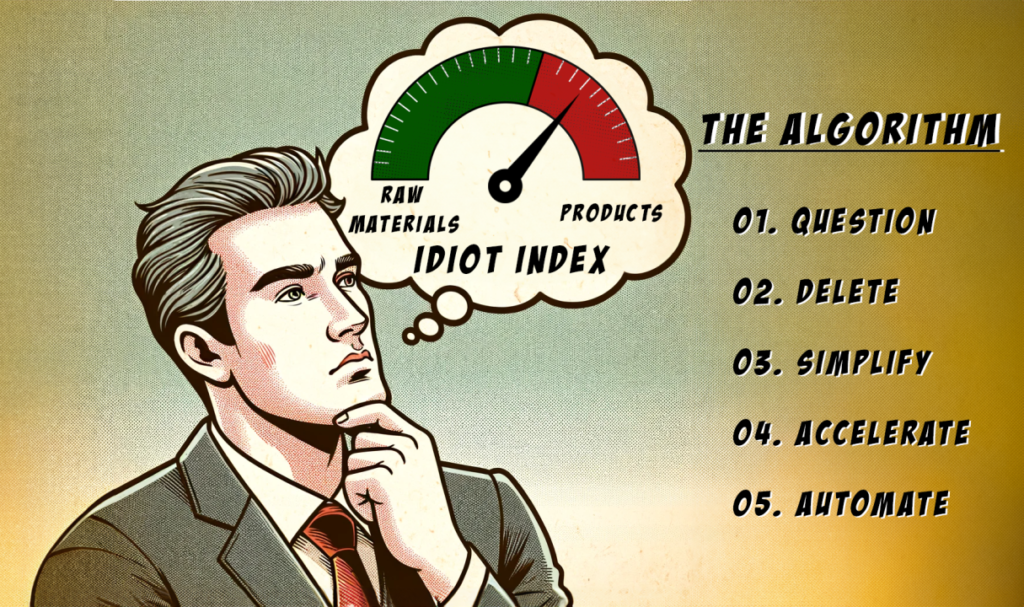Reynaldo C. Lugtu, Jr. l August 1, 2024 l Manila Bulletin

In recent months, Italian prosecutors have uncovered alarming practices within the luxury goods industry, specifically targeting Dior, a subsidiary of LVMH, and Giorgio Armani. Documents revealed that Dior paid subcontractors a mere $57 to produce handbags that retailed for approximately $2,780. This revelation underscored not only the exploitation of workers but also the gross disparity between production costs and retail prices.
These findings resonate with the concept of the Idiot Index, a term popularized by Elon Musk to measure inefficiencies and the lack of oversight within business operations. The Dior case, marked by inadequate checks on working conditions and technical capabilities of contracting companies, provides a stark example of the potential pitfalls when businesses prioritize profit margins over ethical practices and operational efficiency.
The Idiot Index is a metaphorical gauge used to measure the level of inefficiency, incompetence, or mismanagement within an organization. It highlights the gap between potential and actual performance, often exacerbated by poor decision-making, lack of oversight, or systemic flaws. Therefore, the Index serves as a critical tool for businesses to identify areas of improvement, streamline operations, and enhance overall efficiency.
The primary application of the Idiot Index is to assess and improve operational efficiency. For example, the Dior investigation revealed significant inefficiencies in their supply chain management, where subcontractors exploited workers to produce goods at a fraction of the retail price. Such practices not only undermine ethical standards but also indicate a failure in maintaining efficient and transparent operations.
In another case, Volkswagen’s emissions scandal exposed how systemic deceit and poor oversight can lead to operational inefficiencies and massive financial penalties. The company’s decision to manipulate emissions data, rather than address engineering challenges, highlighted significant management flaws that the Idiot Index aims to identify and correct.
Effective cost management is another critical area where the Idiot Index is applicable. Businesses often overlook hidden costs associated with inefficiencies and poor practices. The disparity between the production cost and retail price of Dior handbags highlights a significant issue in cost management. By addressing these inefficiencies, companies can reduce unnecessary expenses and improve profitability. For instance, in the airline industry, Southwest Airlines has successfully applied principles akin to the Idiot Index by streamlining operations, reducing turnaround times, and maintaining a low-cost structure, thereby enhancing profitability and customer satisfaction.
Moreover, the well-being of employees directly impacts their productivity and, consequently, the overall performance of the business. The Dior case, where workers were found sleeping in the facility and operating machines without safety devices, exemplifies a severe neglect of employee welfare. The Idiot Index can help businesses identify such issues, ensuring that employees work in safe and conducive environments, ultimately enhancing productivity and morale. Similarly, Amazon has faced criticism for poor working conditions in its fulfilment centers. By applying the Idiot Index, Amazon could identify and rectify inefficiencies in labor management, improving both worker conditions and operational efficiency.
Elon Musk has applied the Idiot Index at Tesla to drive efficiency and innovation. By identifying and eliminating inefficiencies, Musk has been able to streamline Tesla’s production processes and reduce costs. For example, Musk has pushed for automation in manufacturing to eliminate repetitive tasks performed by human workers, thereby reducing error rates and increasing production speed. Additionally, Tesla’s direct-to-consumer sales model eliminates the traditional dealership network, reducing costs and improving customer satisfaction. Musk’s relentless focus on innovation and efficiency is a practical application of the Idiot Index, ensuring Tesla remains competitive in the rapidly evolving automotive industry.
The application of the Idiot Index can be observed in various business practices within the Philippines, a country grappling with similar issues of inefficiency and poor oversight. For instance, the manufacturing sector often faces challenges related to labor practices and operational inefficiencies. By applying the Idiot Index, companies can identify these shortcomings and implement measures to improve working conditions, streamline operations, and reduce costs.
Similarly, the agricultural sector in the Philippines is another area where the Idiot Index is highly relevant. Issues such as poor resource management, inadequate training for farmers, and inefficient supply chains contribute to low productivity and high wastage. By leveraging the Idiot Index, agricultural businesses can identify and address these inefficiencies, leading to improved yields and profitability.
Ultimately, the concept of the Idiot Index provides a valuable framework for businesses to assess and improve their operations. The Dior case serves as a stark reminder of the consequences of neglecting operational efficiency and ethical practices. By applying the Idiot Index, businesses can identify areas of inefficiency, reduce costs, improve employee welfare, and enhance overall productivity.
In the context of the Philippines, the Idiot Index can help various sectors address their unique challenges, leading to more sustainable and profitable business practices. As global business environments become increasingly competitive, the importance of operational efficiency and ethical practices cannot be overstated, making the Idiot Index an essential tool for modern businesses.
*** The author is the Founder and CEO of Hungry Workhorse, a digital, culture, and customer experience transformation consulting firm. He is a Fellow at the US-based Institute for Digital Transformation. He is the Chair of the Digital Transformation IT Governance Committee of FINEX Academy. He teaches strategic management and digital transformation in the MBA Program of De La Salle University. The author may be emailed at rey.lugtu@hungryworkhorse.com
The views and opinions expressed above are those of the author and do not necessarily represent the views of FINEX. Photo from LinkedIn and Google.

